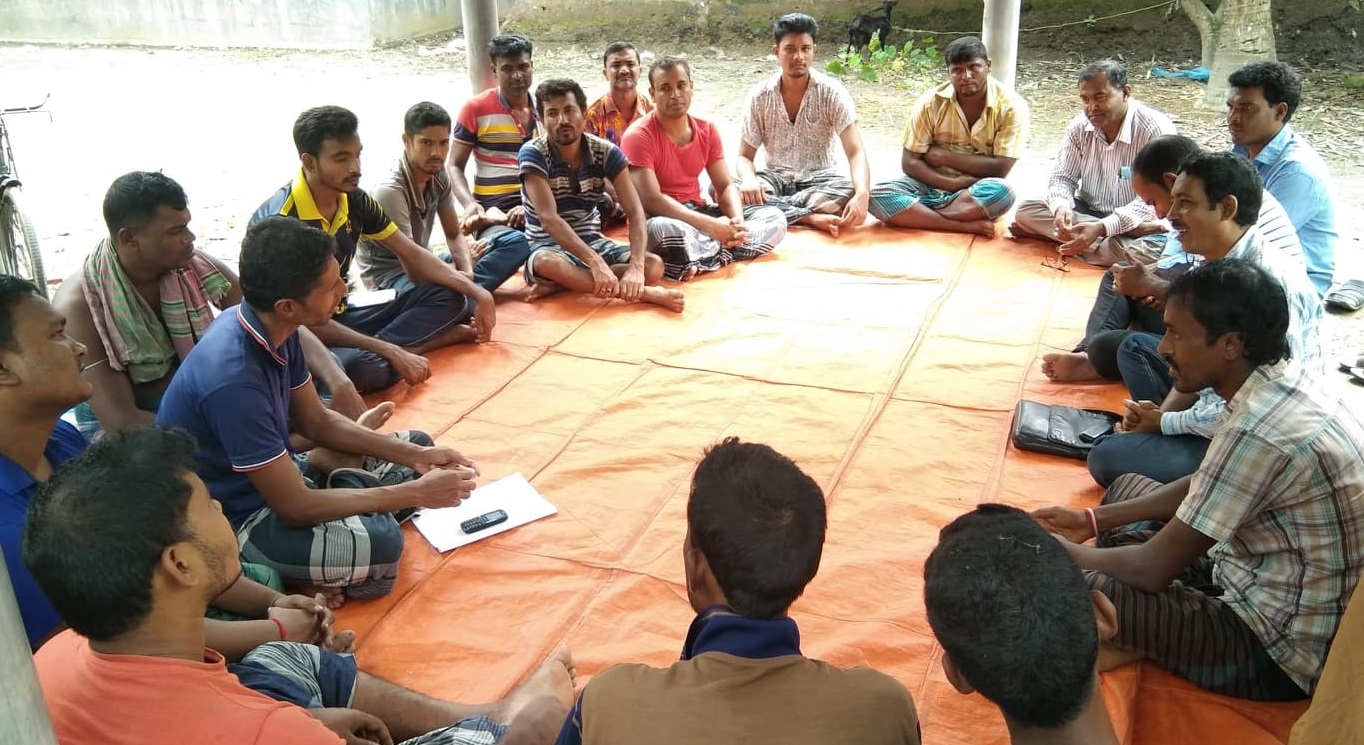Sustainable Agriculture and Food Security
As a local development organization LoCOS have been working in Dacope and Batiaghata Upazilas of Khulna. LoCOS initiates different activities for agricultural development by the direct involvement and participation of marginal farmers and secure their livelihoods. LoCOS has been working with marginal Farmers to address different issues on agriculture and livelihood development. The establishment of agro-economic zones for watermelon cultivation is one of the demands of the marginalized farmers. For improved and sustainable livelihood. The farmers immediate requirements are- the availability of high yielding inbred seeds that require less pesticide ensures easy availability of seeds, irrigation system, excavation of rivers and canals, technical knowhow from experienced farmers and agriculturists. Providing interest free loans to real farmers, fixing fair prices of all types of seeds and arranging for sale of pesticides at fair prices, strict monitoring of whether fertilizers are being sold at government fixed prices, soil testing and fertilizer recommendation before watermelon cultivation, setting up of warehouses for sale of watermelons at government level at local level, fixing of wharves and truck fares and effective monitoring and protection of watermelon transport and marketing system from middlemen.
LoCOS preserved 105 local Aman rice varieties
LoCOS experienced that many local Aman rice varieties are missing as hybrid rice seeds are cultivated by the farmers. During the cultivation, farmers purchase hybrid rice seeds. At this, they are inclined not to preserved local seed varieties. As an impact of this trend, the local agroecological system becomes vulnerable due to absence of many local crops varieties. On the other hand, hybrid seed dependency increases the agriculture production cost. Marginalized farmers livelihood on agriculture becomes vulnerable. To address the crisis, LoCOS takes initiatives through farmers led approach to conserve the local Aman rice varieties and other local seeds in the intervention area. LoCOS preserves 105 local Aman rice varieties and distributes among the farmers for free of cost. Beside the hybrid rice cultivation, farmers are cultivating local rice varieties in their land as well. During the harvesting time, they preserved seeds for the next season cultivation.
The farmers are cultivating different indigenous rice varieties including Kalmilota, Chini Kanai, dute Kolam, Bashfull balam, Taeash Balam, Rupeshar, Kalogira, Banapol, Lalgotal, Lily, Gopalbhogh, Shotin, Mota, Ranisalutt, Mohinisalutt, Sylet balam, Dakeshail, Haridhan, Dhurgabhogh, Kataribhogh, Banglamoti, Kachara, and Harishanko etc.
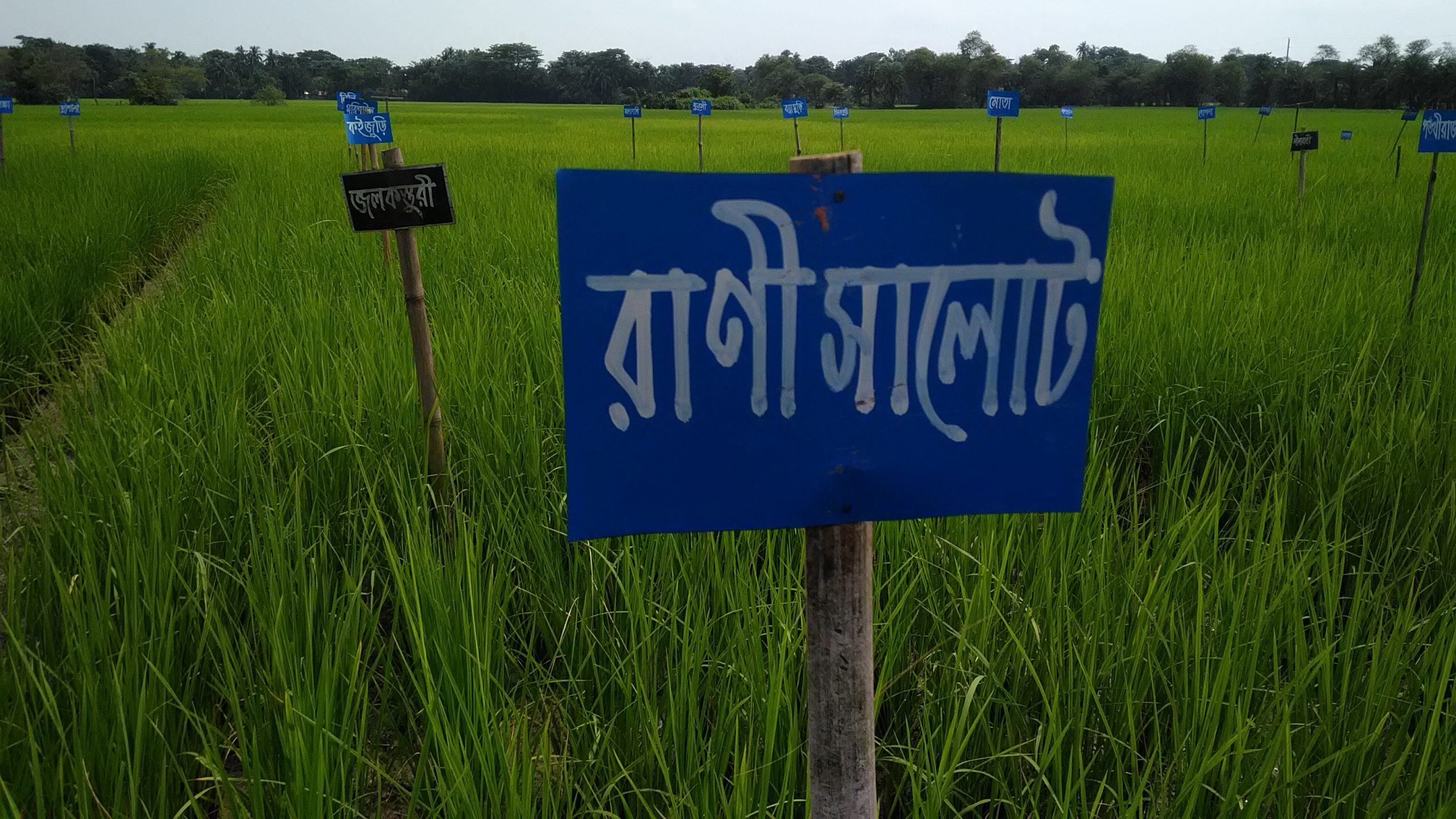
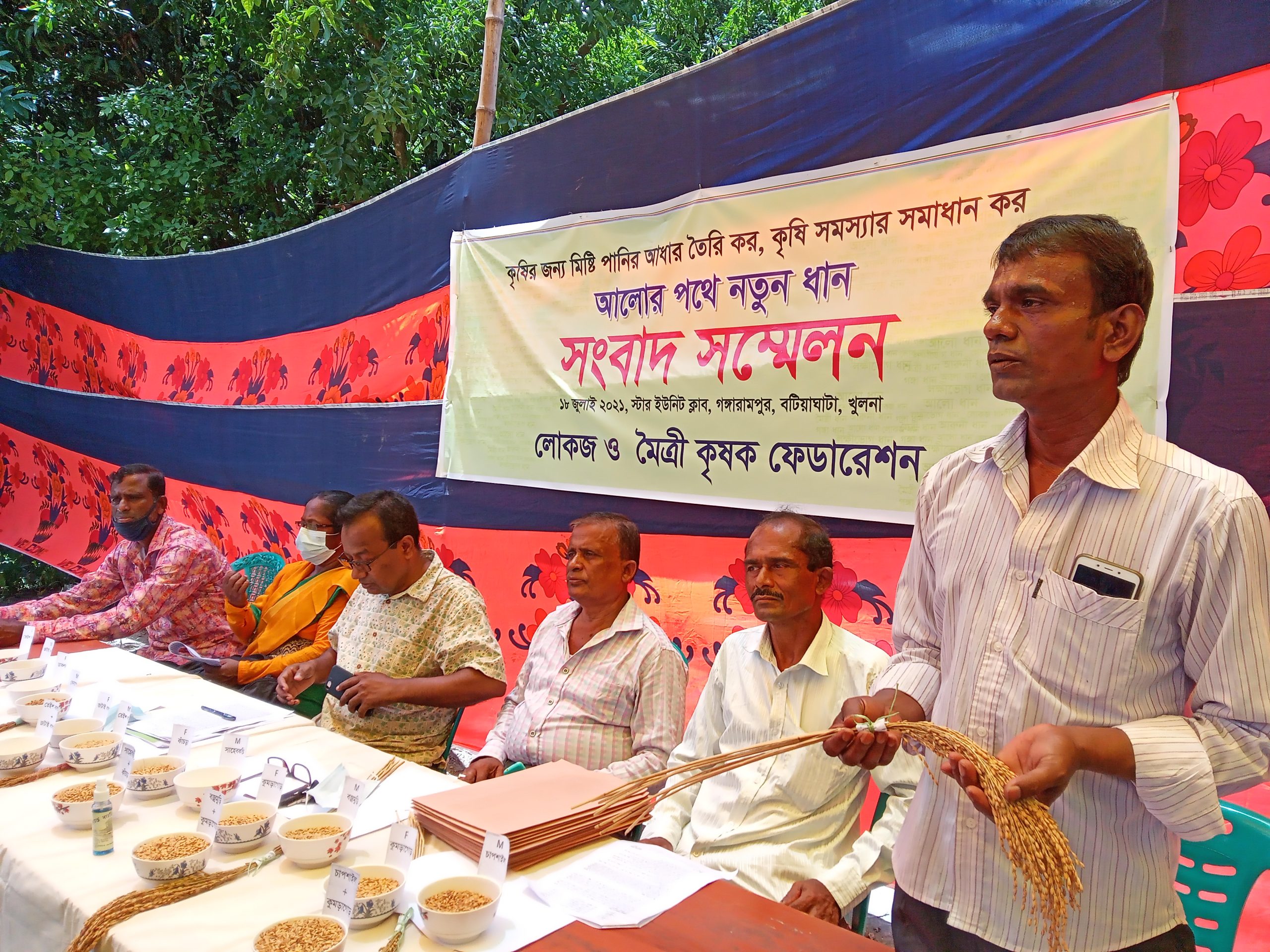
Climate-adaptable Aman: Farmer develops 6 varieties through Farmers led agriculture development approach of LoCOS
Aruni Sarkar, a farmer from Gangarampur village of Khulna's Batiaghata Upazila, finally succeeded in developing high-yielding and climate-adaptable varieties of Aman paddy. As an initiative of LoCOS, he invented 10 new climate resistant varieties of Aman rice in 2010. Now these varieties are uniformed through selection processes and identified as new Aman rice seed varieties. Among 10 varieties, six have been promising and the farmers are cultivating during rainy season.
LoCOS believe that these varieties would change the fate of poverty-hit farmers in southern coastal region where saline water intrudes. The newly developed six types of Aman paddy have been named “Alo Dhan”, “Locos Dhan”, “Aruni Dhan”, “Ganga Dhan”, “Maitri Dhan”, and “Lakshmibhog Dhan”.
The main features of these paddy are their salinity tolerance, high yield and the ability to ripen faster. The traditional Aman paddy can survive around one week under saline water. But the new variants can survive over two weeks. Even, the traditional Aman paddy can tolerate 1 dS/m (deciSiemens per metre) — a unit used to measure the degree of salinity in land. But the new ones can tolerate up to 3 dS/m.
Access to natural resources and services
Landless and marginalized farmers of Batiaghata and Dacope Upazilas are craving for accessing local natural resources, services and policy change that reduce their vulnerability to climate change. With the support of LoCOS, the farmers in the working area are being organized to achieve access to open waterbodies like rivers and canals through farmers led movement and advocacy with the relevant authorities.
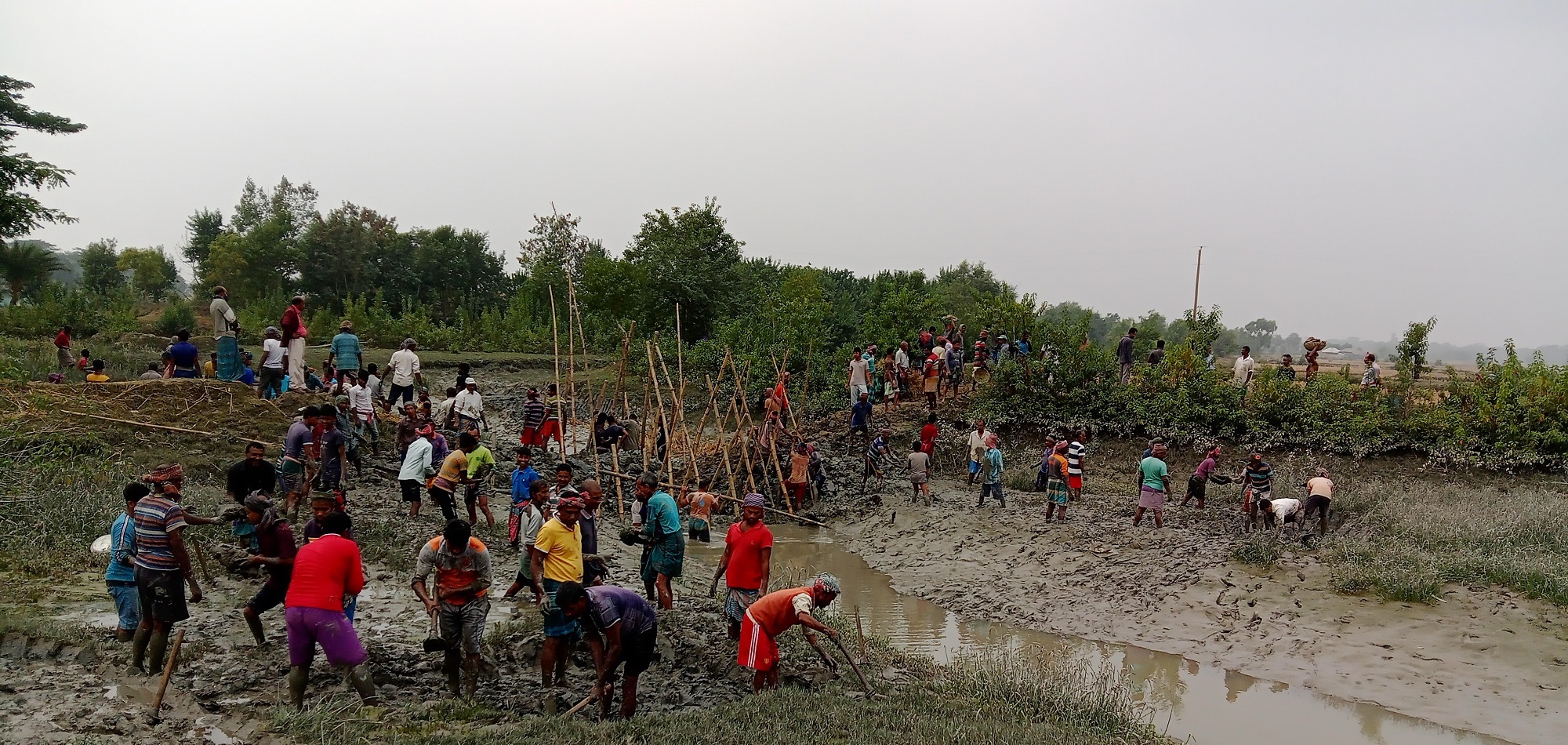
Rice adaptability trial farm
Community based farmer led research by establishing rice adaptability trial farm helped the farmers to be organized and screening rice varieties for climate change adaptation, rice field diversification to reduce vulnerability to pest and diseases as well as reducing expensive agricultural inputs. LoCOS initiates to enhance and scale up of the trial plot approach as tools of community organizing and strengthening rice research.
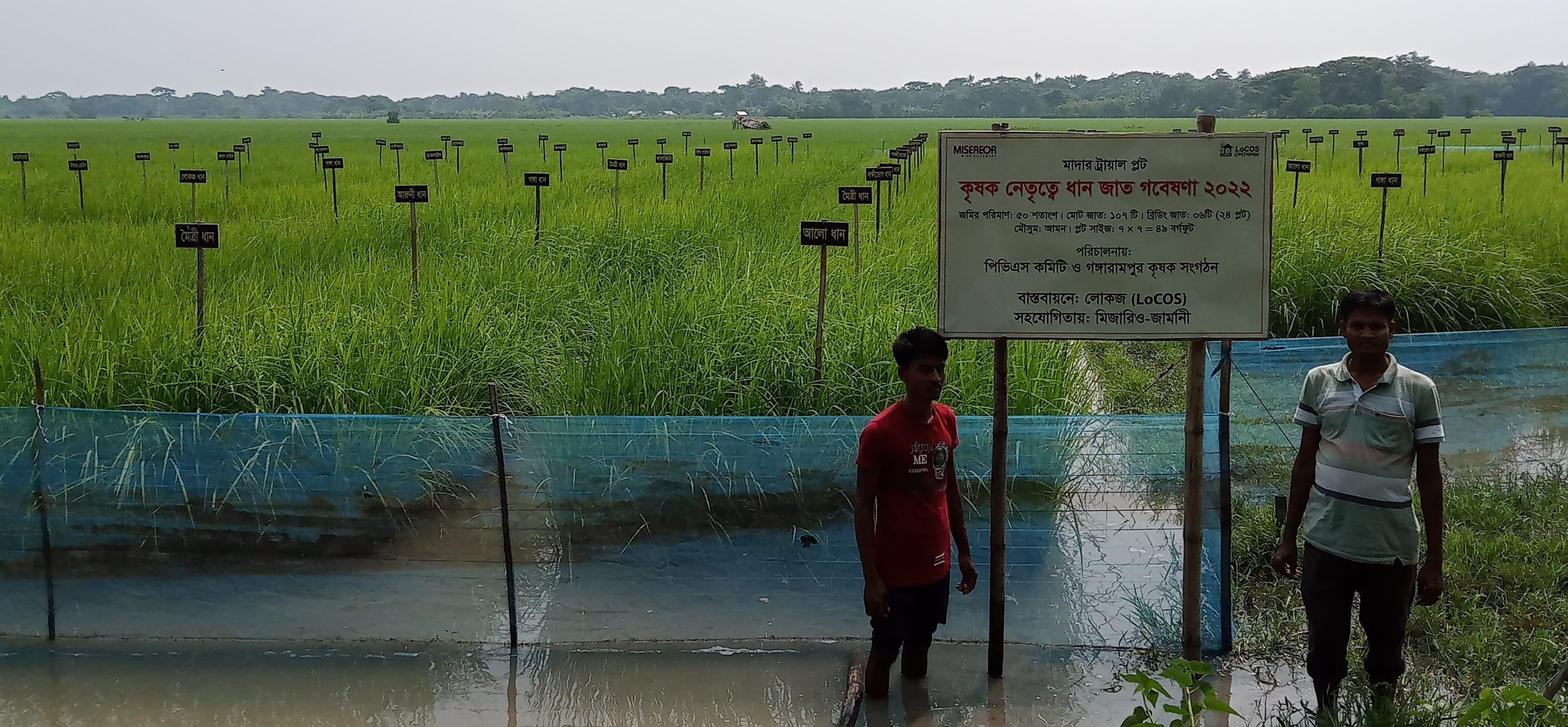
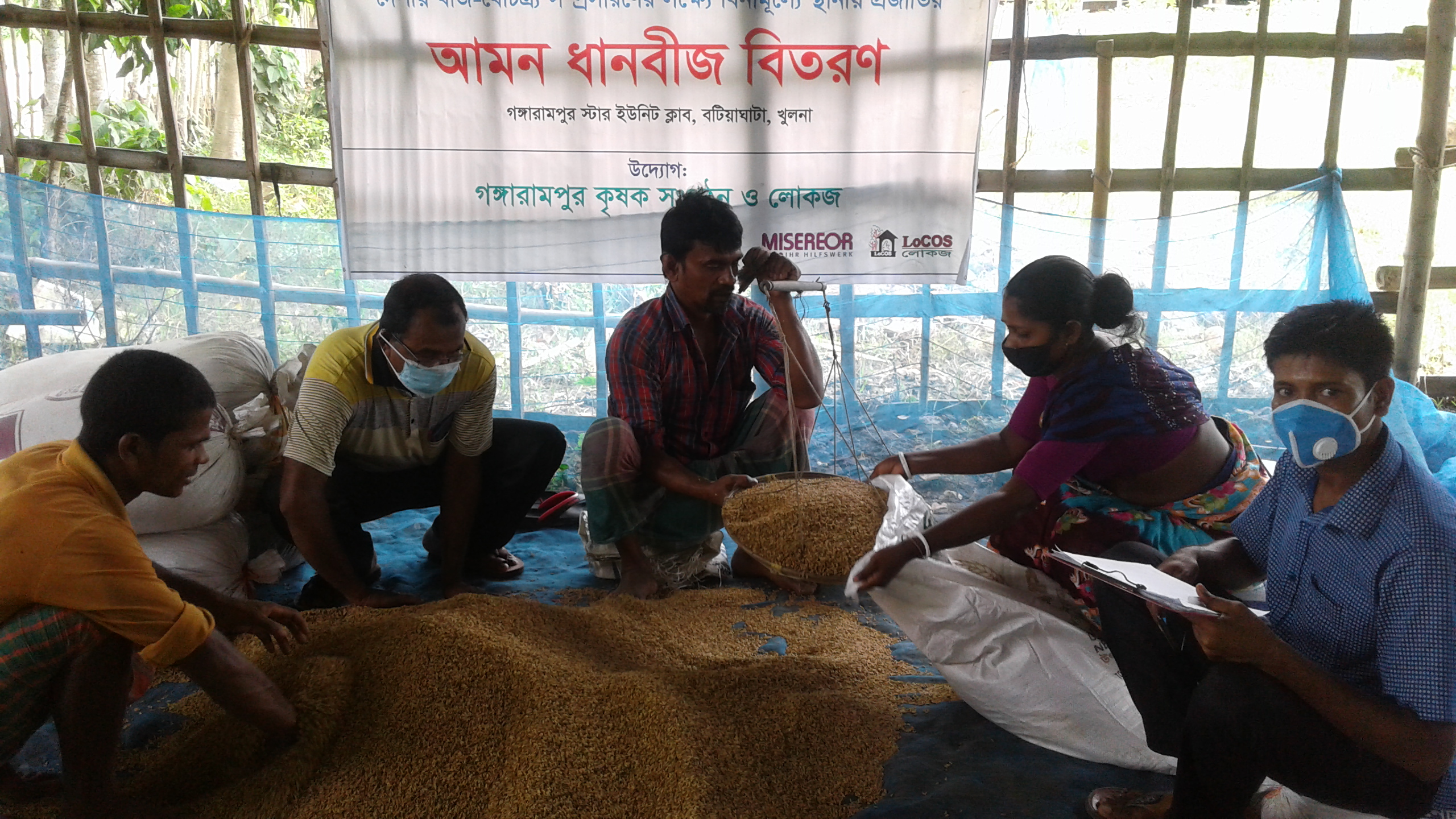
Collection, preservation and expansion of Aman rice varieties
The natural characteristics of southwestern Bangladesh is completely different from other parts of the country. From here on, there is a flooded area, whereas on the other side there is a waterlogged area. Again, sweet water and saline water are present in this environment. Due to this diverse environment, local rice varieties of Bangladesh are threatened. In this regard, LoCOS continued their efforts to collect and preserve the lost rice varieties of local varieties in collaboration with farmers and peasant organizations in Dacope and Batiaghata Upazilas of Khulna district of southwest Bangladesh.
Introducing Self-help savings and credit programs with 3.2 million loan disbursement
LoCOS took initiative to form self-help savings and credit group among the farmers organization. This group is contributing to some extent to farmers to get rid of loan with high monthly interest from informal money lender as well as NGO micro credit. This approach gradually becomes popular among the non-self-help savings and credit group community and strengthened self-help savings and credit group for scaling up and enhancing.
